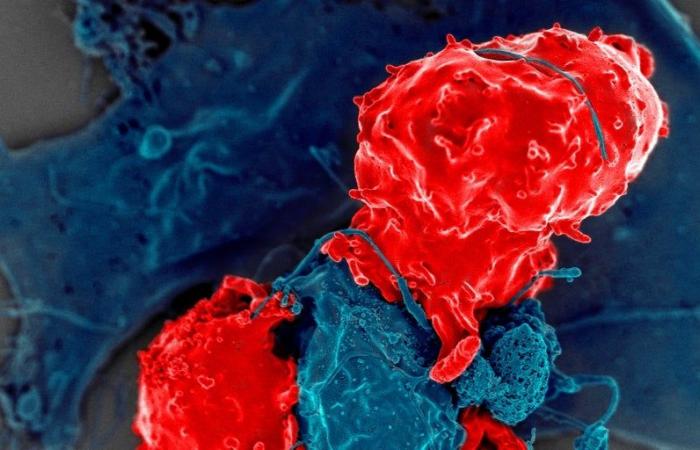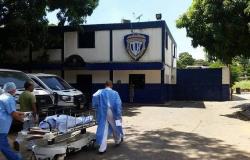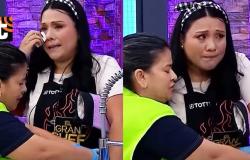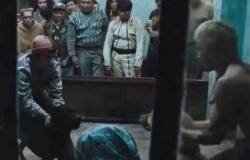In the 80s, Carl June’s team of the University of Pennsylvania (USA) was a pioneer in the field of immunotherapy, specifically for the development of Cell cell therapy against cancer (CAR-T), treatment, treatment … which revolutionized the handling of some types of blood cancer.
However, some already marketed car-t do not achieve their goal in some types of leukemia. Now, the June team has designed a new “battleship” T -car cell therapy of the latest generation that, in a small study with patients whose B cell lymphomas continued to resist multiple rounds of other cancer treatmentsI managed to reduce cancer in 81 % of patients and achieved complete remission in 52 %.
The findings, led by researchers from the Perelman Faculty of Medicine of the University of Pennsylvania, are published in the ‘New England Journal of Medicine’.
More than 50 % of lymphoma patients who receive CAR-T cell therapy currently available do not experience long-term remission. For those whose cancers return or become resistant after car-t cell therapy, the prognosis is unfortunately, bad, with few remaining options.
Commercial CAR-T therapy has established itself in recent years as a habitual treatment for patients with different types of lymphoma, Julio Delgado, head of the Oncoinmunotherapy Unit at the Clinic Hospital in Barcelona. In our country, he says, «we have commercial products for diffuse lymphoma of large cells, follicular lymphoma and mantle cell lymphoma. However, This therapy is not infallibleand there is a group of patients who run out of options when they fail after receiving CAR-T ».
This study, adds the spokesman of the Spanish Society of Hematology and Hemotherapy (SEHH) provides a possible solution for these patients who have already been treated with conventional conventional CAR-T without success.
Flexibility
Delgado explains that “one of the most fascinating advantages of car-t therapy is its flexibility: once the T lymphocytes have been modified to identify an antigen, other modifications can be added.”
In this case, «T the T lymphocytes have been achieved, in addition to recognizing malignant cells by the CD19 protein on its surface, secrete a specific cytocin, interleukine 18. This interleucin improves the capacity of CAR-T cells to remove tumor cells. That is, in the local tumor environment these cytokines are released, whose natural function is precisely to help the immune system to destroy cancer cells ».
This molecular trick, as Ignacio Melero, professor of immunology at the University of Navarra points out, “consists in introducing in the lymphocytes, together with the Car gene, another gene that encodes for an immunostimulant substance called Interleuquina-18. The car-t thus built to coexpress cytokines are called armored car-t, and have greater therapeutic power. This concept has been tested preclinically and clinically with other cytokines, but with more modest clinical results ».
Details Jakub Svoboda, who directed the clinical trial at the Abramson Oncological Center of Penn Medicine, which this version, modified to secrete Interleucin 18 (IL18), a proinflammatory cytocin capable of strengthening the immune system, recruits new immune cells to support modified T cells. In this way, “it protects even more to CAR-T cells and promotes their ability to attack cancer cells,” explains June.
Clinical trial
The 21 patients of this phase I clinical trial had received a median of seven additional therapies before enrolling in the study, and all, except one, had already tried a car-t cell therapy approved for their type of cancer. When cancer continues to progress despite aggressive treatments like this, it is partly due to immunosuppression and exhaustion of T cells, which reduce the effectiveness of cancer therapies.
This study represents a significant advance in the evolution of CAR T cell therapy, since it is the first time that a therapy is proven with cytokines in patients with blood cancer. When analyzing patient blood samples after receiving the treatment, the equipment found solid evidence that indicates that the addition of IL18 to the CAR T cells contributed to the high response rates.
This strategy could be effective in environments where CAR-T cells have not had the same performance, as in solid tumors
«We believe that the incorporation of cytokine secretion in the design of CAR-T cells will have wide implications to improve cell therapies, even beyond hematological cancers,” says June. With greater persistence and expansion of T cells, this strategy could be effective in environments where CAR-T cells have not had the same performance, as in solid tumors ».
“As far as I know,” says Delgado, “this type of” battleships “, that is, reinforced by secretion of cytokines, are not currently being used in Spain, not even in clinical trials.”
What is being explored in our country, he adds, are car-t with double or triple specificity. For example, “in patients who have failed with anti-CD19 CAR-T, products are being tested with double specificity (ANTI-CD19 and ANTI-CD20, ANTI-CD19 and ANTI-CD22, ANTI-CD19 and BCMA, etc.), with several in progress to assess whether this strategy can reverse the previous failures.”
Hucart19-il18 production also uses a process, developed by the Penn cell immunotherapy centerwhich shortens the manufacturing time of CAR-T cells just three days. For patients with aggressive and rapid cancers, this means being able to initiate CAR-T cell therapy faster than with current standard manufacturing times of nine to fourteen days. Previous research has suggested that this shorter manufacturing time could also improve the power of T cells.
The June team already plans several additional clinical trials, including studies that will expand the HUCART19-il18 to patients with acute lymphocytic leukemia (LLA) and chronic lymphocytic leukemia (LLC). Another trial for Non Hodgkin lymphoma, which uses a similar product of T Car cells with an IL18 armor, is currently recruiting patients,
“We are expectant to the arrival of these new products, either in the context of clinical trials or, eventually, approved and available for generalized use,” concludes Delgado,






